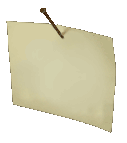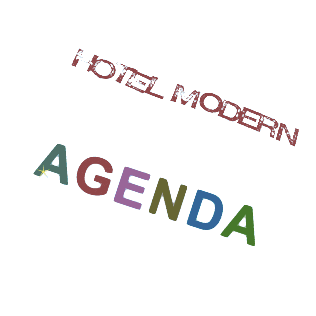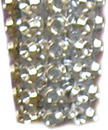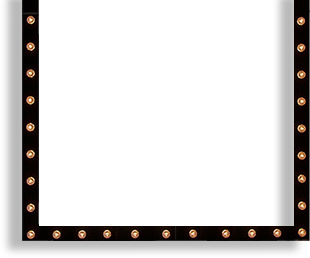…







Article about 'Our Empire' in the Portugese newspaper Público (07 10 2023) by Mariana Duarte
Hotel Modern portrays the colonisation of Indonesia in miniature (and in detail)
The Dutch theatre company returns to FIMP with Our Empire, exposing one of the least known episodes of European colonialism. This Saturday and Sunday at Campo Alegre Theatre.
Hotel Modern likes to stage material that makes a powerful impact – visually and thematically. In the impressive set filled with a profusion of scale models, materials and puppets constructed in delicate and minute detail, they create scenes-within-scenes accompanied by live sound effects, and use cameras to project live video on a large screen. This exercise in the spectacular in miniature will quicken the heartbeat of anyone fascinated by detail and the unlimited convolutions of the imagination. In thematic terms, they tackle historical events that are as remarkable as they are distressing.
The Dutch trio’s first international hit was 2001’s The Great War, in which they recreated the trenches of the First World War. Their 2005 production Kamp, which evoked daily life in the Nazi concentration camp Auschwitz-Birkenau, was rooted in the family experiences of one of the company members. They performed this play at FIMP (Porto International Puppet Festival) in 2020.
More recently, in Our Empire they portray the first chapters of the Dutch colonisation of the Indonesian archipelago, which played out from 1600 to 1680. This piece, which again was instigated by the family history of one of the members, highlights one of the periods of European colonialism most often swept under the carpet.
It is with Our Empire that Hotel Modern is now returning to FIMP, this Saturday and Sunday at Campo Alegre Municipal Theatre. It shows how the market for spices (specifically nutmeg, cloves and pepper) allowed the Dutch to build a powerful and opulent commercial empire – one that obviously, like any colonial history, came at the cost of the blood and sweat of indigenous peoples.
They suffered slave labour on nutmeg plantations; the killing of those who revolted, including the genocide of the Banda people; the rape of women, resulting in dozens of children abandoned in orphanages; the extermination of religions, languages and customs; the exploitation of natural resources; and the impoverishment of local populations. In Western Europe, meanwhile, Dutch painting was reaching its zenith thanks to money stolen from the other side of the world. (To understand the baggage of this history and its legacies in the present [because none of this remains innocently in the past, behind us] read Amitav Ghosh’s recent book The Nutmeg’s Curse: Parables for a Planet in Crisis.)
To evoke this world in Our Empire, Hotel Modern show us cannons firing, ships sinking and villages burning, as well as intrigues, vaulting ambitions and negotiations over the sale of spices and souls to the devil. ‘As far as possible, we wanted to tell the story from the perspective of the Indonesians, and portray the Dutch as “aliens” who took control of their territories,’ explained Pauline Kalker, performer and co-maker at Hotel Modern, in an interview with Público.
Portugal and Japan in the mix
Performed and literally ‘manipulated’ by Pauline Kalker, Herman Helle and Arlene Hoornweg, the three central figures in the company, Our Empire is the result of an investigation in which the trio consulted and involved Indonesian artists, historians and friends, as well as Dutch people of Indonesian descent. They include artist Irwan Ahmett, based in Jakarta; sound designer Tomy Herseta, who ‘helped write the parts of the script in which the Indonesian people play the leading role’; and historian Ron Habiboe from the Maluku Islands (Moluccas), who worked with artists Henry and Joshua Timisela to support the company in preparing the accompanying programme about the Moluccan population in the Netherlands. ‘Another of our most important sources of information was The History of Hitu, written in the 17th century by Ridjali, a Moluccan imam,’ Arlene Hoornweg notes.
But it all started with the story of Herman Helle’s parents. They were born in what was then the Dutch East Indies. When, during the Second World War, these territories were invaded by Japan, which was trying to take over large parts of Asia, Helle’s father was conscripted into the army. He was 19 years old, and his mission was to fire at Japanese planes. It was a war in which the Netherlands were defeated, resulting in the loss of its 300-year-old colonial empire. Indonesia then temporarily fell under the yoke of Japanese rule, until they also quitted the territory with the advent of the 1945-1949 Indonesian National Revolution and subsequent independence. This second war claimed victims on various sides.
[pull quotes]
Bringing this national premiere to Portugal, to a country with its own colonial history and wounds, is ‘very significant’
In Our Empire we see cannons firing, ships sinking, villages burning and negotiations over the sale of spices and souls to the devil
Herman Helle’s father spent three years in a forced labour camp under Japanese rule. ‘He told me almost nothing about it, but he did let me look at his journals,’ the artist says. ‘Reading them, I found out about the forced labour and the hunger, and that on his birthday he saw a good friend executed before his own eyes. Soon after the Second World War, the war of independence broke out, and my father deserted – we portray this event in the play,’ Helle says. ‘He was never ashamed of having deserted. He had no appetite for yet another war.’
Hotel Modern initially wanted to create a piece focusing on the Indonesian War of Independence, ‘the biggest conflict never fought by the Netherlands’ [the Netherlands described its military operation as ‘police actions’]. Instead the trio chose to go further back, to the ‘origin of it all’. Given the impossibility of recreating all 17,000 islands of the Indonesian archipelago, they focus on three of the most painful points in the Dutch colonial endeavour: the islands of Java, Banda and Ambon. Banda and Ambon belong to the Malukus, and at the time Ambon was in the hands of (surprise!) the Portuguese. They were expelled by the armed merchants of the Dutch East India Company, the VOC, which was created to annihilate fellow European colonialists on the region’s trade route.
Educational aspect
Our Empire is divided into three parts. The first is the family story of Herman Helle, and he narrates himself. This is followed by the Dutch conquest of the Moluccan Islands, ‘told from the perspective of Orang Kaya of Hitu, an important leader in Ambon,’ says Pauline Kalker. The third is ‘an epic story about the way the Dutch used divide-and-rule tactics to seize power in Java.’ The piece ends with ‘the emergence of a new section of the population, made up of people of mixed heritage, which gave rise to a large community that is known today as Eurasian,’ the maker explains. ‘Many of these people now live in the Netherlands.’
Without detracting from the show’s artistic impetus and distinctive modus operandi (drawing on theatre, cinema, performance and visual art) the project clearly has an educational aspect, especially considering how little known and discussed this history is – in the Netherlands or elsewhere. In Portugal, the debate on colonialism in the region is still taking only its first steps, and proceeding with a succession of stumbles and silences.
‘Most people in the Netherlands don’t know much about the Banda genocide, except those of Moluccan origin. Schools pay very little attention to it,’ the company says. ‘We’re just beginning to face up to our colonial past. The current focus is mainly on the Atlantic trade in enslaved people, in which the Netherlands also played an important role. Our king recently made an apology for it, and for the violence used by Dutch colonial forces during the Indonesian war of independence, which was accepted. But he hasn’t yet apologised for the Banda genocide or for colonialism in Indonesia as a whole,’ they observe.
They do attest to some efforts to increase awareness in the arts, however: ‘There are many artists here who are addressing historical slavery, and various theatre practitioners are focusing more generally on the Dutch colonial era.’ In parallel to Our Empire, the company made a show for younger audiences titled Peter Pepper, with performances in schools, to make the history of the colonisation of Indonesia ‘accessible’ to children from the age of eight.
How to draw the audience in
The technical and narrative mechanisms the company uses – the audience watches both the ‘making of’ and the resulting video projection simultaneously, in real time – also foster a more inquisitive and light-hearted engagement with a weighty and complex subject.
‘Our use of scale models allows us to bring big themes to the stage, literally and figuratively. The audience watches us create miniature scenes that we project live on a big screen, and sees how realistic they are. The fact that they have to invest their own imagination draws them into the story and gets them involved,’ the artists say. ‘It’s a wonderful way to work for us, because it makes almost anything possible. We can have special effects like explosions, underwater scenes, and thousands of extras – because the puppets are just eight centimetres tall. We can use the cameras to look at the world through someone’s eyes, creating a powerful sense of intimacy.’
Hotel Modern uses a wide range of materials: ‘Clay, plastic, cardboard, souvenirs, photocopies… the list is long. We also make highly detailed puppets.’ They admit that it’s a huge logistical puzzle to get everything to run without a hitch, from making all the puppets move together to ‘timing the camera cuts and sound cues’.
The music and sound effects, essential to the dramaturgy and the rhythm of the piece, are orchestrated live by composer Arthur Sauer, a long-time collaborator with the company. ‘I think the best sound I managed to create is when a Portuguese ship sinks during a naval battle. It wasn’t possible to portray it visually. I used the sound of bamboo canes breaking – I constructed a lot of short cracks, stretching some of them, in several layers. It took me ten days,’ Sauer said in a Dutch interview.
For Hotel Modern, bringing this national premiere to Portugal, a country with its own colonial history and wounds, is ‘very significant’. ‘In this respect, the histories of our countries are quite similar,’ they say. ‘It’s good to look at this issue in a broader European context,’ given that ‘colonialism was a business in which many European countries were drawn together in a toxic political competition rooted in greed.’ Opening up the ‘darkest chapters’ of this history is a process to be continued.























